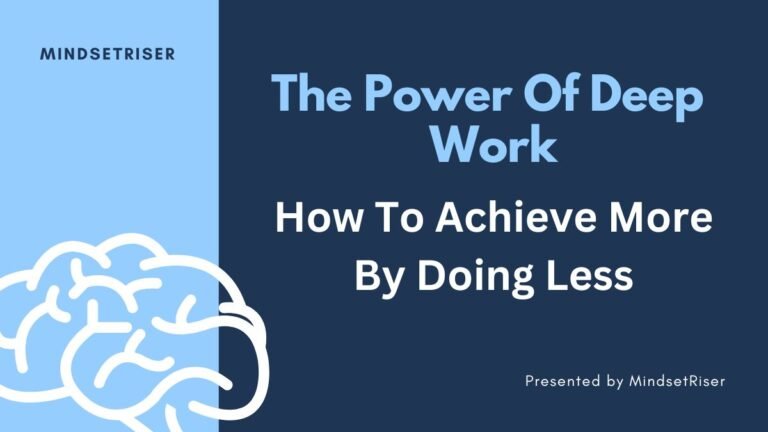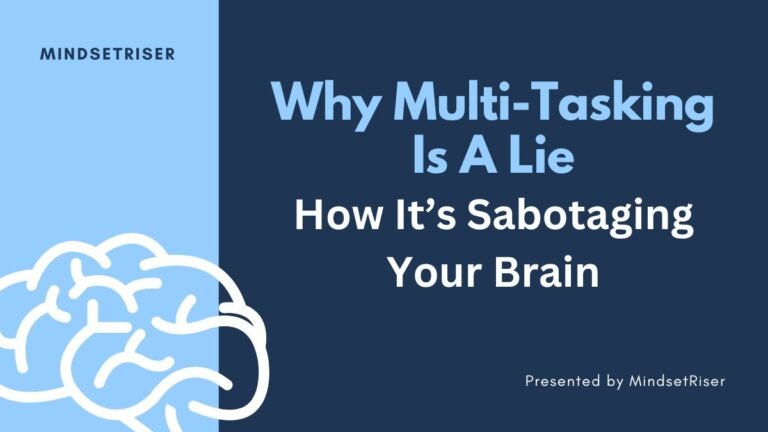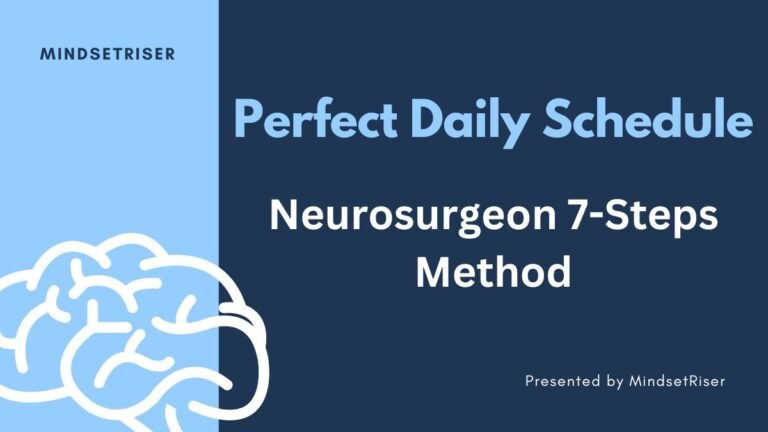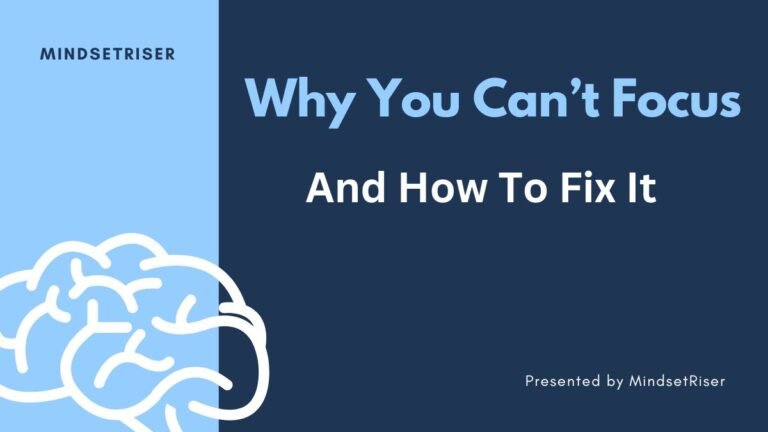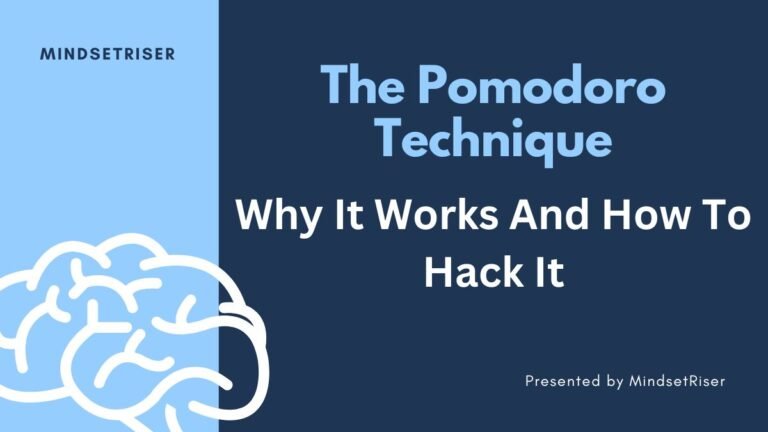Decision-Making: How to Improve Your Ability to Make Better Choices
Making good decisions shapes the path to success and well-being in both personal and professional life. Strong decision-making skills allow you to seize opportunities, avoid unnecessary mistakes, and reduce stress. On the other hand, poor decision-making often leads to negative outcomes, missed opportunities, and regret. In this article, we’ll explore how you can enhance your…
Making good decisions shapes the path to success and well-being in both personal and professional life. Strong decision-making skills allow you to seize opportunities, avoid unnecessary mistakes, and reduce stress. On the other hand, poor decision-making often leads to negative outcomes, missed opportunities, and regret.
In this article, we’ll explore how you can enhance your decision-making ability. From understanding the science behind decision-making to practical strategies and common pitfalls, you’ll learn how to make more effective choices in everyday life.
The Science of Decision-Making
Decision-making is a complex process that involves psychological and cognitive factors. Our brains use both rational thinking and emotional responses to make choices, but this process is often influenced by biases and mental shortcuts.
Cognitive Biases and Decision Fatigue
Understanding the psychological aspects of decision-making is crucial for improving your ability to make better choices. For example, cognitive biases can lead you to make decisions based on incomplete or inaccurate information. Common biases, like confirmation bias or availability bias, can distort your judgment and influence your choices negatively.
Additionally, decision fatigue occurs when you make too many decisions in a short time, which lowers your ability to make good choices. Recognizing these factors and their influence on your decisions will help you make more informed, rational choices.
Types of Decision-Making
People use different approaches to make decisions, depending on the situation and their personalities. Here are three common types:
1. Rational Decision-Making
This method involves carefully analyzing all available options, considering the pros and cons, and making a logical decision based on facts. It’s most effective in situations that require objectivity and clarity.
2. Intuitive Decision-Making
Intuitive decision-making relies on gut feelings and instinct rather than detailed analysis. This approach works best when time is limited or when you have experience in the area and can make quick, effective decisions based on patterns and instincts.
3. Emotional Decision-Making
Emotions play a powerful role in our decisions. While emotional decision-making can sometimes lead to quick, heartfelt choices, it can also cloud judgment. Understanding when emotions are driving your decisions helps you stay in control and make better choices.
Strategies to Improve Decision-Making
Now that you understand the different types of decision-making, let’s dive into actionable strategies that will help you make better choices:
1. Set Clear Goals and Priorities
Start by defining your goals and identifying what matters most. Clear goals help you make decisions that align with your values and long-term objectives, making it easier to stay on track.
2. Gather Information and Analyze Options
Before making any decision, gather relevant information and consider all available options. Weigh the benefits and risks of each choice, and look at the long-term impact. This allows you to make more informed, confident decisions.
3. Avoid Snap Judgments
Snap judgments can lead to poor decisions. Take your time to consider your options, even if the decision seems urgent. The extra time spent weighing options can help you make more deliberate, thoughtful choices.
4. Consider Long-Term Consequences
Before finalizing a decision, ask yourself how it will impact you in the future. Thinking long-term can help you avoid decisions that might provide short-term satisfaction but have negative long-term consequences.
Overcoming Common Pitfalls in Decision-Making
Many people fall into common decision-making traps that can lead to poor outcomes. Let’s look at some of these pitfalls and how to overcome them:
1. Analysis Paralysis
Analysis paralysis happens when you overthink a decision and fail to act. To combat this, set a deadline for making your decision and stick to it. Sometimes, making any choice is better than making no choice at all.
2. Overthinking
Overthinking can lead to confusion and stress. Trust your judgment and avoid the tendency to dwell too much on every detail. Focus on what matters and move forward confidently.
3. Fear of Failure
Fear of making the wrong choice can paralyze you. Remember, failure is part of the learning process. Instead of fearing mistakes, embrace them as opportunities to grow and refine your decision-making skills.
The Role of Emotions in Decision-Making
Emotions significantly impact decision-making. While emotions can motivate us to make decisions, they can also cloud our judgment.
Managing Emotional Responses
Learning to manage your emotions is essential for making clear, rational decisions. Practice techniques like mindfulness or deep breathing to help regulate your emotions and prevent them from influencing your choices too heavily.
Decision-Making in Groups
Making decisions in groups presents its own challenges. Groupthink, peer pressure, and conflicting opinions can complicate the decision-making process.
Encouraging Diverse Perspectives
To make better group decisions, encourage open discussions and diverse viewpoints. Allow everyone to voice their opinions and challenge each other’s ideas. This will help prevent groupthink and ensure you consider a wider range of options.
The Importance of Reflection After Decision-Making
Reflecting on your decisions helps you learn from your choices and improve your decision-making process over time.
Learning from Your Decisions
Take time to assess the outcome of your decisions. What worked well? What could you have done differently? By reflecting on both successful and unsuccessful choices, you’ll gain valuable insights that help you improve your decision-making in the future.
Conclusion
Improving your decision-making skills can lead to more thoughtful, effective choices and better outcomes in life. By understanding the science of decision-making, using strategies like goal-setting and careful analysis, and learning from past decisions, you can enhance your ability to make better choices.
Start applying these tips today, and watch your ability to make confident, informed decisions improve in all areas of your life.


